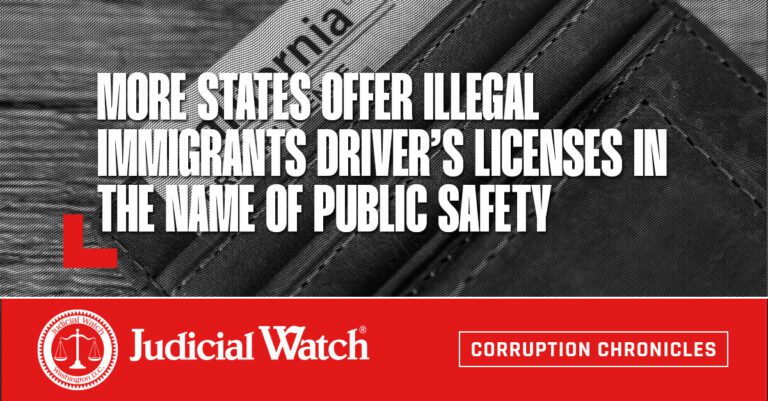

More States Offer Illegal Immigrants Driver’s Licenses in the Name of Public Safety


In a growing national trend of rewarding illegal immigrants with official government benefits and documents, more states are offering undocumented residents official driver’s licenses. In all, 19 states and the District of Columbia have passed measures that permit foreigners living in the U.S. illegally to obtain driver’s licenses. Just last month laws went into effect in Massachusetts and Rhode Island and Minnesota will begin offering illegal aliens the cards in the next few months.
California, Colorado, Connecticut, Delaware, Hawaii, Illinois, Maryland, Nevada, New Jersey, New Mexico, New York, Oregon, Utah, Vermont, Virginia, and Washington are the other states that let illegal immigrants get driver’s licenses. Typically, candidates need only to present a foreign passport or birth certificate or a consular card along with evidence that they live in the state. Open border groups and their leftist allies in local governments across the nation assert that granting illegal aliens driver’s licenses benefits everyone because it makes roads safer, therefore improving public safety. In New York City, officials cite unspecified “data” that shows expanding driver’s license eligibility to illegal immigrants improves road safety and lowers insurance premiums for all. Besides “making our roads safer,” Illinois’ governor says giving illegal aliens licenses decreases stigma and creates a more equitable system for all.
In Massachusetts, which began issuing licenses to illegal immigrants just weeks ago, officials make similar assertions. Democratic Governor Maura Healy claims it is a “benefit for public safety, for our economy, and for our immigrant residents who should be able to drive to work, school, or the grocery store without fear.” The state’s Registry of Motor Vehicles will spend about $28 million to issue the cards to an estimated 200,000 applicants, according to figures provided in a local news report. Road materials will be available in several languages and the state will provide translation services so that “a resident’s first experience with the Registry is a successful one,” according to Massachusetts’ Transportation Secretary. The law, which took effect on July 1, is officially known as the Work and Family Mobility Act.
Rhode Island also began issuing the cards to illegal immigrants at the same time. Applicants must provide verification from the tax administrator that they have filed a personal income tax return as a Rhode Island resident or have been claimed as a dependent by a state resident. Governor Dan McKee says the measure is an important issue for the economy, equality and public safety. “By granting every Rhode Islander of driving age the opportunity to safely and legally drive a vehicle, we are allowing them to further their education and career – which in turn benefits the entire state,” said the Democrat, who previously served as Rhode Island’s lieutenant governor. “That means more workers will have access to more jobs and opportunities that keep Rhode Island’s momentum going. This legislation will make our roads safer, and our economy stronger, and I am proud to sign it into law.”
Minnesota will start issuing the cards to illegal immigrants in October and the state expects to have more than 80,000 applicants. Driving manuals are available in multiple languages and interpreters to guide foreigners through the road skills test. The benefit of allowing anyone, regardless of citizenship status, to obtain a driver’s license is to “create safer roads and communities,” the Minnesota Driver and Vehicle Services writes in a brochure. “This law will allow undocumented residents, many of whom drive to work and school, to get a driver’s license to prove they’re safe drivers and qualify for car insurance,” according to the agency, which predicts that “insurance rates will possibly decrease due to fewer uninsured motorist costs.” The measure includes provisions that forbid local police from sharing information about illegal immigrants who have received a driver’s license with federal authorities or use the information to enforce immigration laws.















